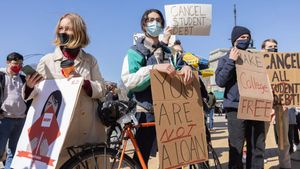Treatment GuideJust DiagnosedSex & DatingAfrican AmericanStigmaAsk the HIV DocPrEP En EspañolNewsVoicesPrint IssueVideoOut 100
CONTACTCAREER OPPORTUNITIESADVERTISE WITH USPRIVACY POLICYPRIVACY PREFERENCESTERMS OF USELEGAL NOTICE
© 2025 Pride Publishing Inc.
All Rights reserved
All Rights reserved
By continuing to use our site, you agree to our Privacy Policy and Terms of Use.
If you missed last year's early rounds of influenza vaccines -- because supplies ran out or you weren't in a top-priority group or you wanted to see if any unsuspected side effects might occur -- it is not too late to get vaccinated. Seasonal flu doesn't start to circulate much until the end of December, beginning on the East Coast and then migrating westward. It remains in play until late April, so getting a flu shot, which provides protection in 10 to 14 days, in January is still useful. The H1N1 virus never disappeared over the summer. By early November it was found in 48 states, and the number of documented cases began to grow while the vaccine remained in short supply. I am projecting that when this issue hits the street, there will be plenty of vaccine available. The initial shortage of H1N1 vaccine was caused by the failure of H1N1 to grow robustly in chicken eggs, producing only one to two doses out of each egg instead of the usual three doses. Newer techniques are now generating three doses per egg. Therefore, I want to reiterate the broader immunization recommendations, caveats, and reminders. >People with HIV are a top priority group. They should get only the injectable vaccine. >Household contacts of people with HIV should also be vaccinated when the demand for the top priority has been met. >The nasal spray vaccine, which contains live virus and is indicated for ages 2- to 49-year-olds, is safe to give to household contacts of people with HIV. Otherwise, they can get the injectable. >Both seasonal and H1N1 vaccines can be taken at the same time, provided that one of them is not a nasal spray. >The flu medications oseltamivir (Tamiflu) and zanamivir (Relenza), which your care provider might give you if you come down with flu-like symptoms, such as fever, aches, and cough, do not interact with anti-HIV medications. >Hospitalizations from the flu are often the result of a secondary pneumonia. All people with HIV should have already been given a Pneumovax shot, which prevents one of the common causes of severe pneumonia. However, Pneumovax needs to be boosted in five to seven years. Since time flies, check with your health care provider to see when you got your Pneumovax. >Perhaps most important, wash your hands. Bowers is an HIV specialist and is board-certified in family medicine. He is in private practice in New York City. Learn more about Bowers at https://www.danbowersmd.com
From our Sponsors
Most Popular
BREAKING: Supreme Court rules to save free access to preventive care, including PrEP
June 27 2025 10:32 AM
Thanks to U=U, HIV-positive people can live long, happy, healthy lives
July 25 2025 2:37 PM
Plus: Featured Video
Latest Stories
Amazing People of 2025: Javier Muñoz
October 17 2025 7:35 PM
It’s National PrEP Day! Learn the latest about HIV prevention
October 10 2025 9:00 AM
“I am the steward of my ship”: John Gibson rewrites his HIV narrative
September 16 2025 2:56 PM
“So much life to live”: Eric Nieves on thriving with HIV
September 03 2025 11:37 AM
The Talk: Owning your voice
August 25 2025 8:16 PM
The lab coat just got queer
August 21 2025 10:00 AM
Messenger RNA could be the key to an HIV vaccine — but government cuts pose a threat
August 20 2025 8:02 AM
The Talk: Beyond the exam room
August 13 2025 3:15 PM
The Talk: Navigating your treatment
August 01 2025 6:02 PM
The Talk: Starting the conversation
July 25 2025 4:47 PM
How the Black AIDS Institute continues to fill in the gaps
July 25 2025 1:06 PM
“I felt like a butterfly”: Niko Flowers on reclaiming life with HIV
July 23 2025 12:22 PM
Dancer. Healer. Survivor. DéShaun Armbrister is all of the above
July 02 2025 8:23 PM
1985: the year the AIDS crisis finally broke through the silence
June 26 2025 11:24 AM
VIDEO: A man living with HIV discusses his journey to fatherhood
June 10 2025 4:58 PM
Trump admin guts $258 million in funding for HIV vaccine research
June 03 2025 3:47 PM
Grindr is reminding us why jockstraps are so sexy and iconic
May 02 2025 5:36 PM
HRC holds 'die-in' to protest Trump health care cuts
April 28 2025 2:11 PM
Trending stories
Recommended Stories for You



































































